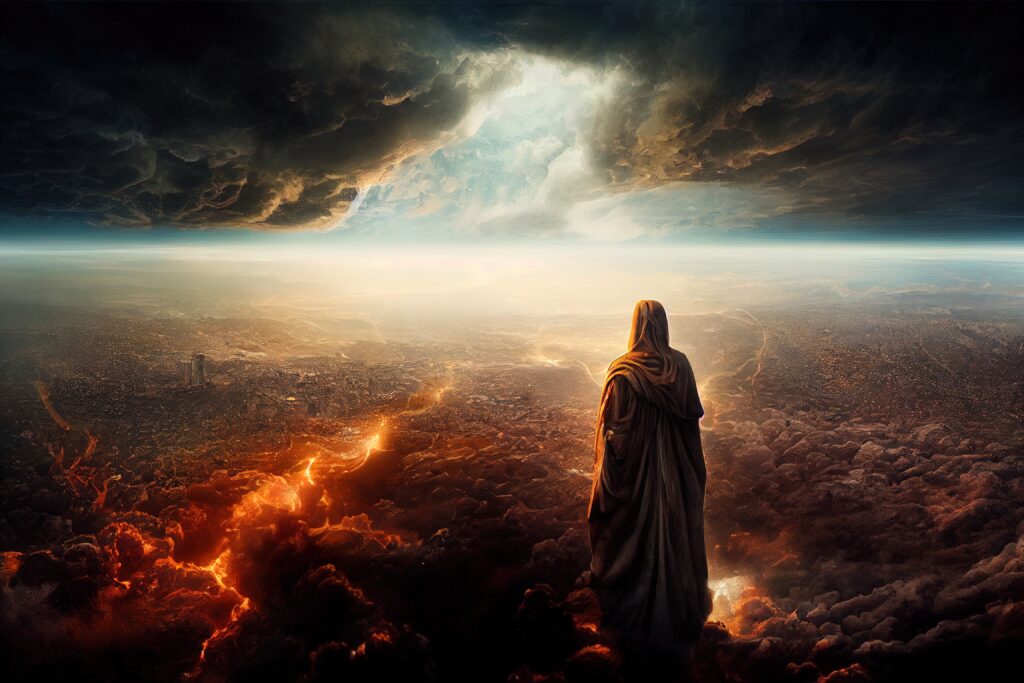
Doxologies of Worship.
Then I looked again, and I heard the voices of thousands and millions of angels around the throne and of the living beings and the elders. 12 And they sang in a mighty chorus: “Worthy is the Lamb who was slaughtered to receive power and riches and wisdom and strength and honor and glory and blessing.” – Revelation 5:11-12. NLT
Jesus is truly worthy. Not only was He the active agent in creation (Rev 4:11; John 1:3), but He acted powerfully to redeem that creation at the cross, the action celebrated so loudly in this chapter of Revelation. What is exciting about this is that the value that He has by right can become ours by redemption (Rev 5:9-10). We can join the angels in celebrating His worth when we see how it makes all the difference in our lives.
A fundamental need of human beings is to have a sense of great value. But how much is a human being worth? It depends on the context. If they were to melt me down into the chemicals of which my body is made, I’m told that I would be worth about fifteen dollars (make that sixteen, I’ve gained a little weight in recent years). But the average Australian is valued by his or her employer at a much higher level than that, something like $100,000 dollars a year. But suppose you were a great league player. Suddenly the value jumps significantly. And if you were the nerdy designer of the operating system on most of the world’s computers, you would be valued at tens of billions of dollars!
You see, we are valued in terms of others. But according to the Bible human value is infinitely higher than the value we assign to each other. According to the Bible, Jesus was worth the whole universe (He made it), yet He knows all about us and loves us as we are.
When He died on the cross, He established the value of the human person. When the Creator of the universe and everyone in it (including all the great athletes and movie stars that people often worship) decides to die for you and me, it places an infinite value on our lives. And since the resurrected Jesus will never die again, my value is secure in Him as long as I live.
“And then I heard every creature in heaven and on earth and under the earth and in the sea. They sang: “Blessing and honor and glory and power belong to the one sitting on the throne and to the Lamb forever and ever.” And the four living beings said, “Amen!” And the twenty-four elders fell down and worshiped the Lamb.” – Revelation 5:13-14. NLT
That Jesus overcomes by dying certainly challenges our way of doing things. We prefer to approach God from a position of strength. We prefer to win on the basis of our talents, not God’s grace. Through the slain Lamb we learn that true victory comes in sacrifice and weakness. The sacrifice of Christ compels us to depend on God’s vindication rather than on our own abilities or efforts. Jesus sets the example of true victory and we are called to follow Him.
There are 5 hymns in these 2 chapters that represent an ascending crescendo of praise. The divinity of Christ is underlined in the progression of hymns in the vision. The first two hymns praise the One sitting on the throne (4:8,11). The third and fourth praise the lamb (5:9-12). The fifth offers worship to both the one sitting on the throne and the lamb. (5:13). This fifth one is the clear climax of the series, in which blessing honour, glory and power are acclaimed to Him who sits on the throne and to the Lamb!
A second feature of these hymns also highlights the fifth hymn. It is the climax of the grand crescendo of singing. The first hymn is sung by the four living creatures (4:8). The second hymn is sung by the 24 elders (4:11). The third is sung by both the four creatures and the 24 elders (5:9,10). The fourth hymn is sung by more than 100million angels (5:11,12). The fifth hymn is sung by every creature in the universe (5:13). So, the fifth hymn is the great crescendo as all attention focuses on the throne, affirming the divinity of the lamb who is being worshiped.
The whole sequence of Revelation 4-5 is moving forward to the great climax in which the Lamb joins the Father on the throne. The major point of this passage is the exaltation of the Lamb to equal status with the Father. This is a status He clearly had before the cross. But after His death there is fresh praise to the glory of Jesus Christ. His mighty self-sacrifice on the cross raises the acclamation of heaven to new heights never before seen. Never again will God be praised without mention of Who the Lamb is, what He has done, and why He is accounted worthy. The joy and integrity of the universe is now centred in the worthiness of the Lamb.
